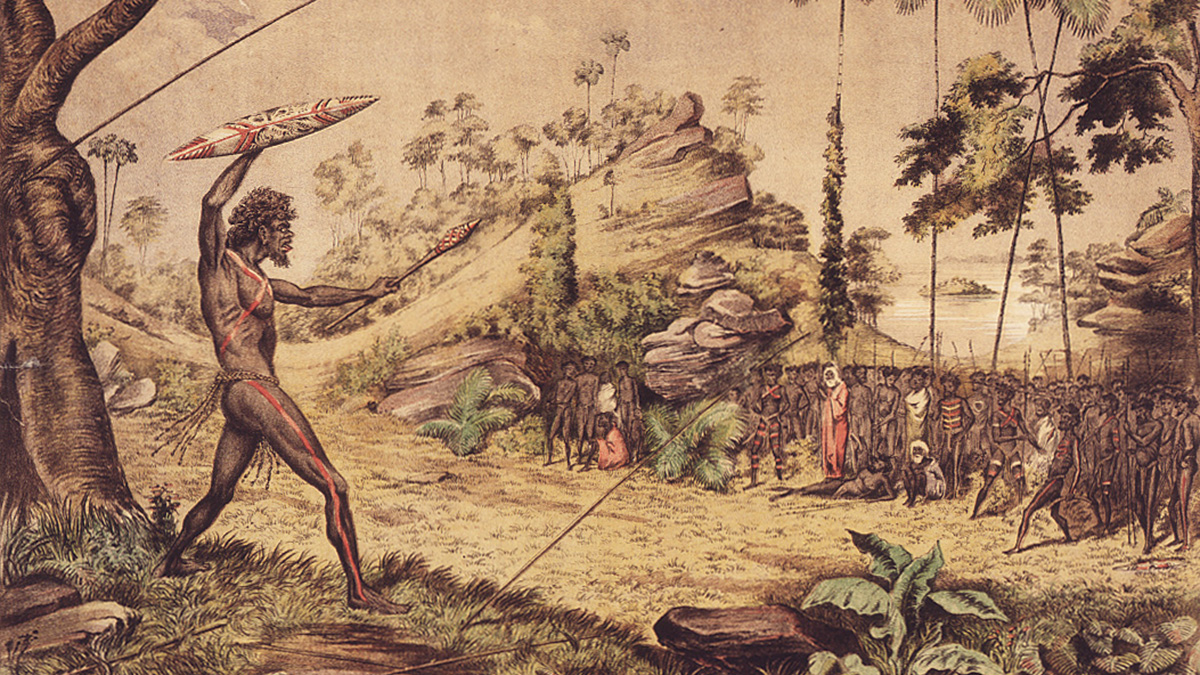When Australian Aboriginal woman Jacinta Nampijinpa Price, and other Aboriginal women, argue that “traditional law” cannot be allowed to excuse and perpetuate the abuses of powerful men, the counter-attacks and excuse-making are not long coming.
“Poverty” is a favourite excuse, despite the fact that abuse grossly disproportionately affects Aboriginal women and children across every income quintile. Then, of course, there’s always that old favourite, “colonialism”.
There’s also the argument that rejecting traditional laws that encourage violence and abuse of women and children is somehow destructive of Aboriginal culture in its entirety.
Claims that those of us who decry the violence against Aboriginal women and children are seeking the abandonment of indigenous culture are a straw man argument meant to deflect attention from the real issues.
Price is correct: outlawing violence is not to destroy an entire culture. After all, Western culture has travelled a long road of rejecting violence and oppression of others, especially women and children. Western culture survived. Just as we Anglo-Celts no longer get about in animal skins and woad, Aboriginal culture has changed. All Price is arguing is that certain parts of it need to change even more.
Culture is an important part of indigenous life. But culture — every culture — changes. We no longer go about daily life in the traditional garb. We no longer eat only bush foods caught in the traditional way. And we should no longer allow the tradition of domination, violence, rape and assault to continue harming and killing indigenous women and kids.
There cannot be two, incompatible legal systems at work in Australia, depending on the colour of one’s skin. There’s a word for that: apartheid.
More to the point, laws that degrade and oppress women and children are not just incompatible with Australian law, they are incompatible with human dignity.
The problem shows in cases such as Pascoe v Hales, when Yolngu man Jackie Pascoe raped and held at gunpoint his 15-year-old “promised” wife. In Australian law, a girl of 15 is not of legal age to have sex, or marry. This is the law Yingiya [Guyula] has sworn an oath to uphold as a member of the Legislative Assembly.
I too know my law and the culture I grew up in. As Aboriginal women, it is well understood that we could be killed if we trespass on sacred men’s ground.
Senior women in my family have told me, in whispers, of the spearing of women by their husbands and of the execution of a teenage girl for refusing to go to a middle-aged promised husband who had already killed a wife.
All my life I have been taught to fear the law and that I could be killed if I broke it. All my life I have seen our women beaten, seen their wounds, visited them in hospital, been to their funerals.
[…]Whitefellas continually change Australian law to make it work better […]All I’m asking is that we Aboriginal people take responsibility for our own law and be willing to keep what is precious and beautiful but abandon what no longer works and denies us our human rights as Australian citizens.
theaustralian.com.au/commentary/indigenous-law-fix-it-if-its-wrong/
The plain truth is that “the world’s oldest living culture”, isn’t. Like all living cultures, it has changed and adapted over time. It’s no more what it was, say, 40 000 years ago than European culture is living in caves and worshipping bears. Aboriginal culture today has changed in many, many ways from what it was 200 years ago. Unfortunately, in some key areas, it hasn’t changed anywhere near enough.
It’s purely coincidental, I’m sure, that the areas apparently most resistant to change are those which enable certain powerful men to rule with an iron fist, not to mention a sharp spear.

